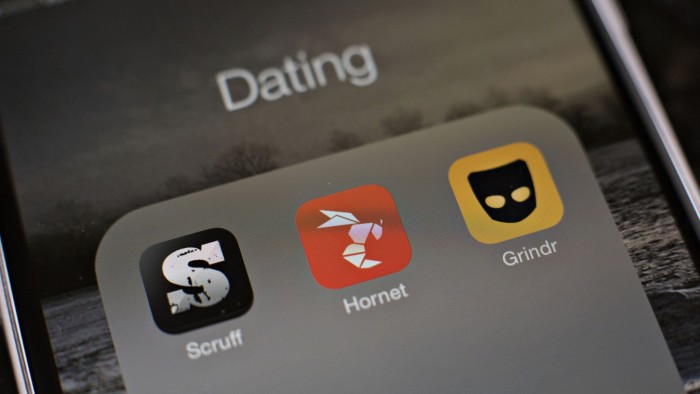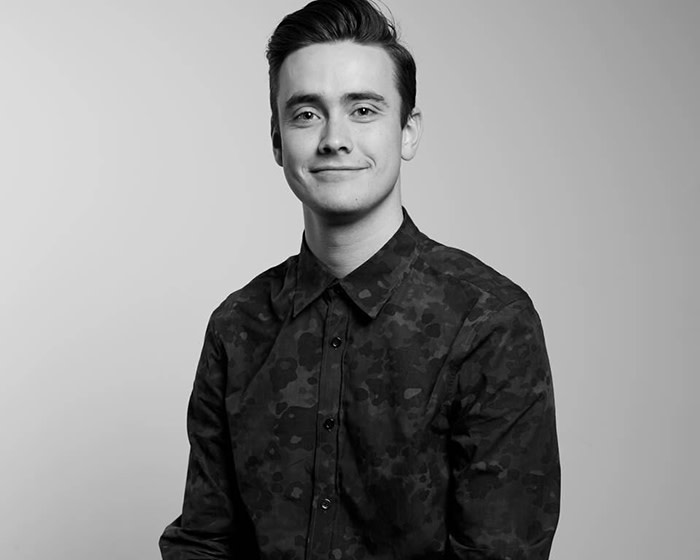Grindr and Tinder: the disruptive influence of apps on gay bars

Roula Khalaf, Editor of the FT, selects her favourite stories in this weekly newsletter.
The Black Cap, the George & Dragon, Madame Jojo’s and the Candy Bar: the list of LGBT bars that have closed in London goes on and on. Since 2006, the UK capital has lost more than half its gay bars and clubs, falling from 125 to 53 in just over a decade, according to research from the Urban Laboratory at University College London.
Hit by rising commercial rents and 2007’s smoking ban, LGBT venues are now facing an additional pressure: dating apps, such as Grindr and Scruff, which have eliminated the need to meet first in bars or pubs.
Gay men, in particular, have been quick to adopt the new technology. A recent survey from Match.com, the matchmaking website, suggested that 70 per cent of gay relationships start online, compared with 50 per cent for heterosexual men.
The Royal Vauxhall Tavern, south London’s oldest surviving gay venue, faced an uncertain future two years ago as developers eyed its prime location; it is situated in one of the capital’s real estate hotspots.
“Without doubt the social media dating apps have had a detrimental impact on how people meet each other,” says James Lindsay, chief executive of the RVT. “There is no need to go to a gay bar to meet people when the easy use of Grindr, Tinder etc gives you immediate access to meet somebody at an agreed location away from a meeting in a bar or club.”
On this occasion, the campaigners emerged victorious, with English Heritage stepping in to grant the building a Grade II listing, which means it is of special historic or architectural interest. The heritage minister at the time, Tracey Crouch, said that the venue was an “iconic cultural hub in the heart of London . . . of huge significance to the LGBT community”. But while the activists celebrated, the listing does not remove the unfavourable economics of running an gay venue.
It is not all bad news, however. Dating apps may be part of the problem in more liberal cultures, but for some in repressive countries they are a solution, says Peter Sloterdyk, vice-president of marketing at Grindr. He has just returned from India, where homosexuality is legal but same-sex relationships are not.
“People are using the app to build a community,” he says. “It has become their lifeline to know that they are not alone. They can’t meet in a physical space — a bar or a club — so they’re using the app to connect with other people like them.”
This was the point of the gay scene in the first place. Before the internet, many people growing up would leave their parents or graduate from university and flock to the bigger cities to meet like-minded people in LGBT bars, clubs or saunas. But with discrimination and stigma decreasing in many western nations, specifically gay venues and neighbourhoods are fast losing their appeal.
“Not many wept for the gay saunas that saw a major decline when expressions of same-sex affection in public were legalised, and when gay bars emerged on the high street from the underground,” says Oriyan Prizant, an analyst at behavioural insights agency Canvas8. “The same process is happening now with the increased comfort in self-expression — gay men in particular now congregate socially elsewhere.”
But real life and digital life need not be mutually exclusive, says Grindr’s Mr Sloterdyk. Many people are using their apps while at a bar or club as a way to meet people. “It has become the new pick-up line,” he says.
Chappy combats online dating ‘stigma’

Dating apps are not only about sex, says Jack Rogers, co-founder of Chappy. Many find the gleaming muscles on Grindr or the voluminous beards on Scruff intimidating. “We were tired of the stigma associated with online gay dating and the brazen, outward prejudices that went unmoderated, leaving so many feeling excluded,” Mr Rogers says.
Chappy is still a way to meet people, but offers the choice between meeting for a potential relationship or casual hookups. The app, launched earlier this year, now has 150,000 monthly active users in both the US and the UK and is looking to expand globally. The embarrassment of meeting online has largely dissipated and with “gay venues closing at an alarming rate across the UK”, Mr Rogers says, it is becoming difficult to find new people.
“We believe tech is the natural evolution and also the solution for many of the issues the community faces.”

Comments